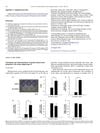Search
for
Sort by
Research
60-90 / 1000+ resultsresearch The Vitamin D Receptor Is a Wnt Effector That Controls Hair Follicle Differentiation and Specifies Tumor Type in Adult Epidermis
Vitamin D receptor helps control hair growth and could be used to treat certain skin tumors.

research Protection Against Chemotherapy-Induced Alopecia
No treatment fully prevents hair loss from chemotherapy yet.
research Prevention of Chemotherapy-Induced Alopecia in Rodent Models
Localized heat or specific injections can prevent chemotherapy-induced hair loss without affecting cancer treatment.
research The Impact of VDR Expression and Regulation In Vivo
VDR regulation varies by tissue and is crucial for its biological functions.
research Cytochrome P450: A Target for Drug Development for Skin Diseases
Modulating Cytochrome P450 activity could help develop new skin disease treatments.

research Repurposing Existing Drugs for COVID-19: An Endocrinology Perspective
Existing drug dexamethasone may lower death risk in severe COVID-19 cases; more research needed for other drugs.

research Cutaneous Malignant Melanoma Incidences Analyzed Worldwide by Skin Type Over Advancing Age of Males and Females: Evidence Estrogen and Androgenic Hair Are Risk Factors
Estrogen and androgenic hair increase melanoma risk, especially in European-ancestry individuals.

research A Systematic Summary of Survival and Death Signaling During the Life of Hair Follicle Stem Cells
The conclusion is that understanding how hair follicle stem cells live or die is important for maintaining healthy tissue and repairing injuries, and could help treat hair loss, but there are still challenges to overcome.

research New Pharmaceutical Concepts for Sebaceous Gland Diseases: Implementing Today's Pre-Clinical Data into Tomorrow's Daily Clinical Practice
New treatments for skin conditions related to the sebaceous gland are being developed based on current research.

research Chemotherapy-Induced Alopecia
Many patients find hair loss from chemotherapy very distressing, and while treatments like minoxidil and scalp cooling may help, there is no sure way to prevent it.

research Vitamin D-Dependent Rickets Type II: Extreme End Organ Resistance to 1,25-Dihydroxy Vitamin D3 in a Patient Without Alopecia
A boy with severe Vitamin D-resistant rickets did not respond to treatment and lacked a common symptom, suggesting a need for alternative treatments.

research Vitamin D Deficiency Among Depressed Women: A Cross-Sectional Study in Iraq
Most women with depression in the study had low vitamin D levels.
research Inactivation of the Vitamin D Receptor Enhances Susceptibility of Murine Skin to UV-Induced Tumorigenesis
Mice without the vitamin D receptor are more prone to UV-induced skin tumors.

research Reduced Levels of Serum 25-Hydroxyvitamin D in Alopecia Areata: A Systematic Review and Meta-Analysis
People with alopecia areata often have lower vitamin D levels than healthy people.

research Status of Serum Vitamin D Level Among Patients With Alopecia Areata in a Tertiary Care Hospital, Bangladesh
People with alopecia areata have much lower Vitamin-D levels than healthy individuals.

research Alemtuzumab-Induced Secondary Autoimmune Skin Disorders as Side Effects of Multiple Sclerosis Therapy: Problem That Can Be Influenced or Fate? A Narrative Overview of the Literature and a Neuroprotective Role of Vitamin D
Taking vitamin D might improve life for MS patients and reduce skin side effects from alemtuzumab treatment.

research Vitamin D Deficiency in Non-Scarring and Scarring Alopecias: A Systematic Review and Meta-Analysis
Vitamin D deficiency is common in people with certain types of hair loss, like alopecia areata and female pattern hair loss.

research Deletion of DNA Binding Domain of the Vitamin D Receptor Abrogates Genomic and Nongenomic Functions of Vitamin D
Removing part of the vitamin D receptor stops vitamin D from working properly.

research Targeted Expression of Human Vitamin D Receptor in the Skin Promotes the Initiation of the Postnatal Hair Follicle Cycle and Rescues Alopecia in Vitamin D Receptor Null Mice
Vitamin D receptor is crucial for starting hair growth after birth.

research The Role of Micronutrients in Alopecia Areata: A Review
People with alopecia areata often have lower levels of vitamin D, zinc, and folate, but more research is needed to understand if supplements can help treat it.
research Suppression of Vitamin D Receptor and Induction of Retinoid X Receptor Alpha Expression During Squamous Differentiation of Cultured Keratinocytes
As skin cells mature, vitamin D receptor levels decrease while retinoid X receptor α levels increase.

research Towards a Molecular Understanding of Hair Loss and Its Treatment
Future hair loss treatments should aim to extend hair growth, reactivate resting follicles, reverse shrinkage, and possibly create new follicles, with gene therapy showing promise.

research Endogenous Retinoids in the Hair Follicle and Sebaceous Gland
Maintaining the right amount of retinoic acid is crucial for healthy hair and skin.

research Molecular Docking of Vitamin D3 Receptor with Potential Herbal Substances as Ligands to Prevent Excessive Hair Loss in Menopausal Women
Certain herbal compounds might help prevent hair loss in menopausal women by activating Vitamin D receptors.

research Enrichment and Characterization of Human Dermal Stem/Progenitor Cells Using Collagen Type IV
Scientists identified a group of human skin cells with high growth and regeneration potential.

research A Humanized Mouse Model of Hereditary 1,25-Dihydroxyvitamin D–Resistant Rickets Without Alopecia
Researchers created a mouse model of a type of rickets that does not cause hair loss.
research Quantification of the Vitamin D Receptor-Coregulator Interaction
Vitamin D receptor binds similarly to natural and synthetic ligands, affecting gene regulation.
research Vitamin D Receptor Gene Polymorphisms Taq-1 and Cdx-1 in Female Pattern Hair Loss
Certain gene variations in the Vitamin D Receptor are linked to higher risk of female hair loss.

research Vitamin D Status and the Effect of Oral Vitamin D Treatment in Children with Alopecia Areata
Oral vitamin D treatment can help some children with alopecia areata who have vitamin D deficiency.